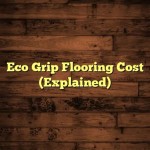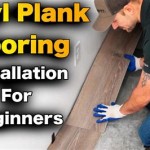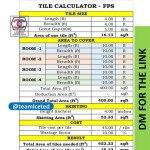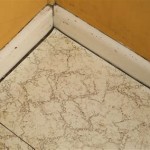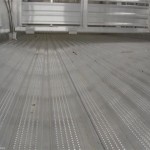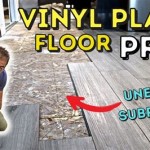Cost of Fitting Engineered Wood Flooring: A Comprehensive Guide
Engineered wood flooring has emerged as a popular choice for homeowners seeking the aesthetic appeal of solid hardwood coupled with enhanced durability and stability. Unlike solid hardwood, which is a single piece of wood, engineered wood consists of multiple layers, typically with a hardwood veneer bonded to a core of plywood or high-density fiberboard (HDF). This construction offers greater resistance to warping, expansion, and contraction caused by changes in humidity and temperature. Determining the cost of fitting engineered wood flooring involves several factors, ranging from the type of flooring selected to the complexity of the installation process. This article provides a detailed breakdown of these cost components.
Understanding the different elements that contribute to the overall cost is crucial for budgeting and planning purposes. This includes the materials themselves, the labor required for installation, and any preparatory work necessary to ensure a successful and long-lasting flooring solution. Ignoring these considerations can lead to unexpected expenses and delays in the project.
Factors Influencing the Cost of Engineered Wood Flooring Materials
The cost of the engineered wood flooring material is a significant portion of the total expense. Prices can vary considerably depending on several factors including the wood species, the thickness of the veneer, the quality of the core material, and the finish applied to the surface.
Wood Species: The type of wood used for the veneer significantly impacts the price. Common options include oak, maple, hickory, walnut, and exotic hardwoods. Oak is generally more affordable than walnut or exotic options. Similarly, some species are more readily available, which can also influence the price point. Consider the desired aesthetic and durability requirements when selecting the wood species. Softer woods may be more prone to scratching and denting, whereas harder woods will offer greater resistance to wear and tear. The longer the expected lifespan of the floor, the more important it is to invest in a high-quality wood species.
Veneer Thickness: The thickness of the hardwood veneer is another critical factor. A thicker veneer allows for more sanding and refinishing over the floor's lifespan. Floors with thicker veneers are generally more expensive but offer greater longevity and value. If the intention is to refinish the floor multiple times in the future, opting for a thicker veneer is advisable. Conversely, if the floor is expected to be replaced within a shorter timeframe, a thinner veneer may be a more cost-effective option.
Core Material: The core material beneath the veneer also influences the price and performance of the flooring. Plywood cores offer excellent stability and moisture resistance, making them a good choice for areas prone to humidity. HDF cores are denser than plywood and provide a more rigid and stable base. Cheaper options might use particleboard, which is less moisture-resistant and can potentially lead to issues if exposed to water. The quality of the core material has a direct impact on the overall structural integrity and lifespan of the floor.
Finish and Treatments: The finish applied to the engineered wood flooring also contributes to the price. Pre-finished floors are coated with a durable finish at the factory, offering convenience and consistent results. Unfinished floors allow for customization of the stain and finish, but require additional labor and materials. Different types of finishes, such as polyurethane, oil-based, or UV-cured, also have varying costs and characteristics. Consider the desired level of gloss, the expected wear and tear, and the required maintenance when selecting the finish.
The cost of engineered wood flooring material can range from $3 to $15 or more per square foot depending on the factors mentioned above. Obtaining multiple quotes from different suppliers is recommended to compare prices and quality.
Labor Costs Associated with Engineered Wood Flooring Installation
The labor costs for installing engineered wood flooring depend on the complexity of the installation, the size of the area being covered, and the prevailing rates in the area. Labor costs typically account for a significant portion of the total project expense.
Installation Method: Engineered wood flooring can be installed using several methods, including floating, gluing, or nailing. Floating floors are the easiest and fastest to install, as the planks lock together and rest on an underlayment. Glue-down installations involve adhering the flooring directly to the subfloor, providing a more stable and permanent solution. Nail-down installations are typically used over wooden subfloors and require specialized tools. The choice of installation method will influence the labor cost.
Subfloor Preparation: Proper subfloor preparation is essential for a successful and long-lasting installation. The subfloor must be level, clean, and dry before the flooring is installed. If the subfloor is uneven or damaged, it may require leveling, patching, or even replacement. Subfloor preparation can add significantly to the labor cost, particularly in older homes where the existing subfloor may be in poor condition. A moisture test should always be performed to ensure the subfloor is adequately dry before installation.
Room Size and Complexity: The size of the room and the complexity of the layout will affect the labor cost. Larger rooms are generally less expensive per square foot to install than smaller rooms, as there is less cutting and maneuvering required. Rooms with intricate layouts, such as those with multiple angles or curved walls, will require more time and skill to install, increasing the labor cost. Obstacles such as pipes, doorways, and built-in cabinets can also add to the complexity of the installation.
Additional Services: Additional services, such as removing existing flooring, installing baseboards or moldings, and disposing of waste materials, can also add to the labor cost. Be sure to inquire about these services when obtaining quotes from installers to get a comprehensive understanding of the total labor expense.
Labor costs for installing engineered wood flooring typically range from $2 to $8 or more per square foot. Obtaining multiple quotes from experienced and reputable installers is essential to compare prices and ensure quality workmanship. Check online reviews and ask for references to verify the installer's experience and reliability.
Additional Costs to Consider
Beyond the cost of materials and labor, several other expenses can contribute to the overall cost of fitting engineered wood flooring.
Underlayment: Underlayment is a thin layer of material installed between the subfloor and the engineered wood flooring. It provides cushioning, sound insulation, and moisture protection. The type of underlayment selected will depend on the installation method and the specific requirements of the floor. Some engineered wood floors come with pre-attached underlayment, which can save on material and labor costs. Underlayment costs can range from $0.50 to $2 or more per square foot.
Baseboards and Moldings: Baseboards and moldings are essential for finishing the edges of the flooring and creating a seamless transition between the floor and the walls. The cost of baseboards and moldings depends on the material (wood, MDF, vinyl), the style, and the length required. Installation of baseboards and moldings is typically included in the labor cost, but the materials themselves will need to be purchased separately. Expect to spend between $1 and $5 per linear foot for baseboards and moldings.
Moisture Barrier: In areas prone to moisture, such as basements or bathrooms, a moisture barrier may be required to protect the subfloor and the engineered wood flooring from moisture damage. A moisture barrier is a thin plastic sheet that is installed over the subfloor before the underlayment and flooring are installed. The cost of a moisture barrier is relatively low, typically less than $0.50 per square foot.
Waste and Disposal: There will inevitably be some waste material generated during the installation process. This may include scraps of flooring, underlayment, and baseboards. Some installers include waste disposal in their labor cost, while others may charge extra for this service. Inquire about waste disposal fees when obtaining quotes from installers to avoid any surprises. The cost of waste disposal can range from $50 to $200 or more, depending on the amount of waste generated.
Moving Furniture and Appliances: Moving furniture and appliances out of the room before the installation begins can also incur a cost. Some installers may offer this service, while others may require the homeowner to handle it themselves. If you need to hire movers to move your furniture and appliances, be sure to factor this into the overall cost of the project. The cost of moving furniture and appliances can vary depending on the size and number of items to be moved.
Contingency Fund: It is always wise to set aside a contingency fund to cover any unexpected expenses that may arise during the installation process. This could include unforeseen subfloor repairs, unexpected material shortages, or additional labor costs. A contingency fund of 5-10% of the total project cost is generally recommended.
Calculating the cost of fitting engineered wood flooring requires careful consideration of all these factors. Obtaining multiple quotes, comparing prices, and carefully reviewing the scope of work will ensure that the project stays within budget and delivers the desired results.
Accurate estimation is paramount for successful flooring projects. By carefully evaluating material options, understanding labor complexities, and accounting for potential unforeseen costs, homeowners can make informed decisions, effectively manage their budgets, and achieve lasting satisfaction with their engineered wood floors.

Cost Of Fitting Engineered Wood Flooring And Beyond Blog

Cost Of Fitting Engineered Wood Flooring And Beyond Blog

Average Hardwood Flooring S In 2024 Forbes Home

How Much Does It Cost To Install Hardwood Flooring Inc

Hardwood Floor Installation Cost 2024 Per Sq Ft Urban Customs Az

How Much Does It Cost To Install Engineered Hardwood Floors

Flooring Installation Cost 2024 Guide Modernize

How Much Does Hardwood Flooring Cost 2024 Guide

2024 Laminate Flooring Installation Cost Guide Angi

Cost To Install Hardwood Floors The Home Depot
Related Posts

